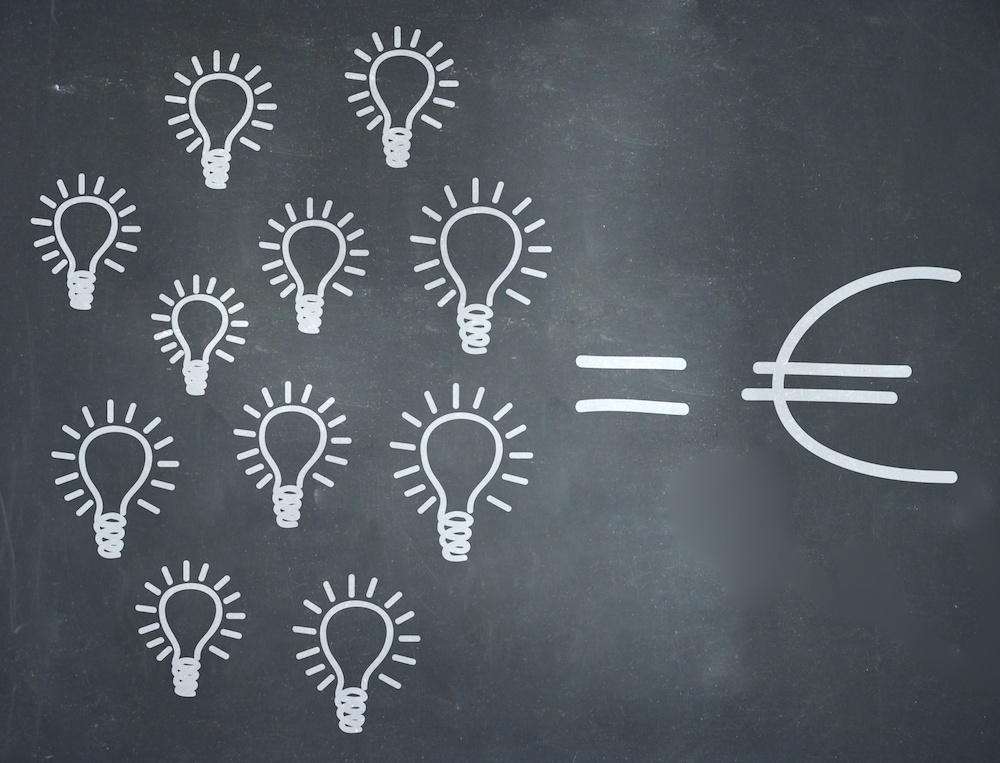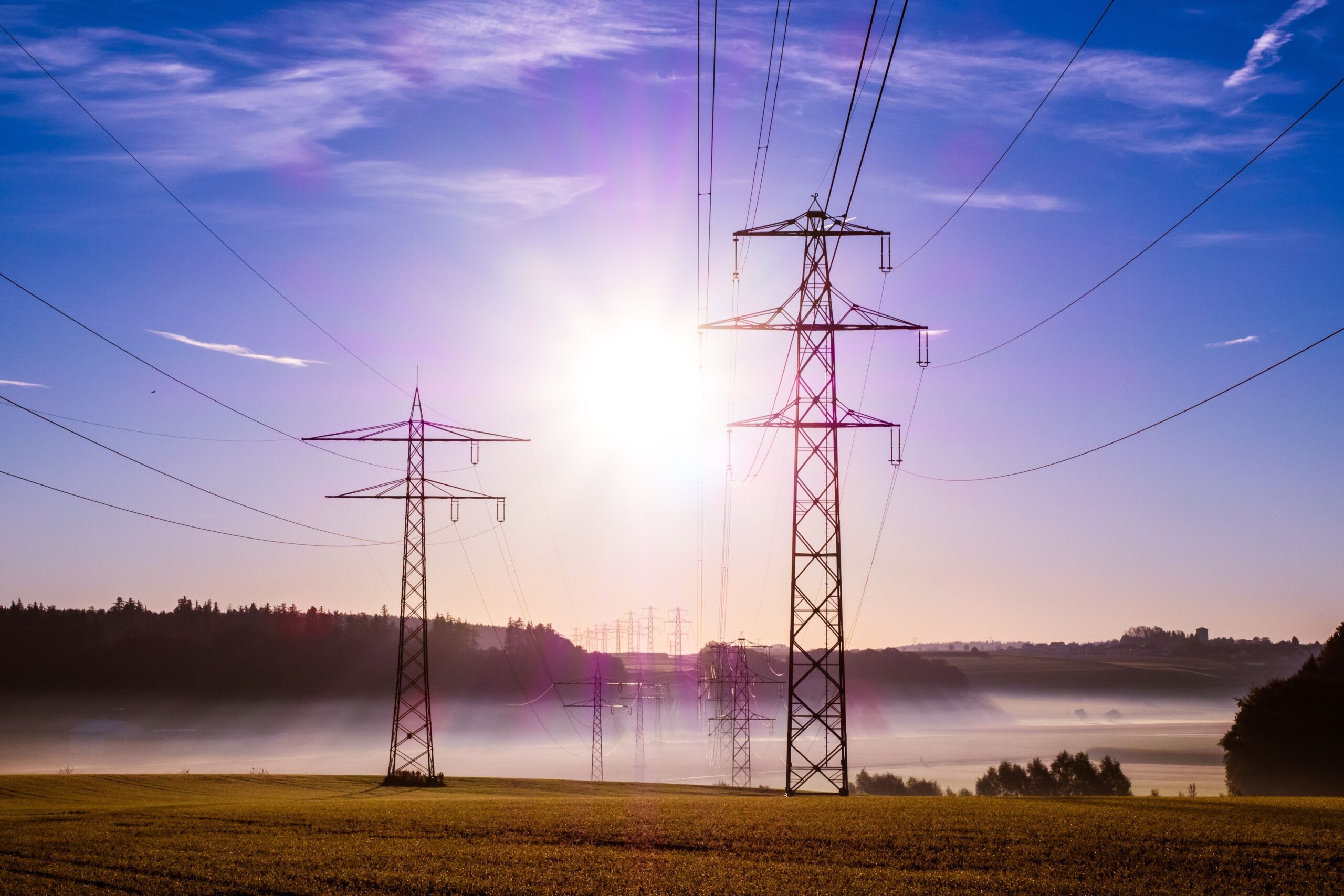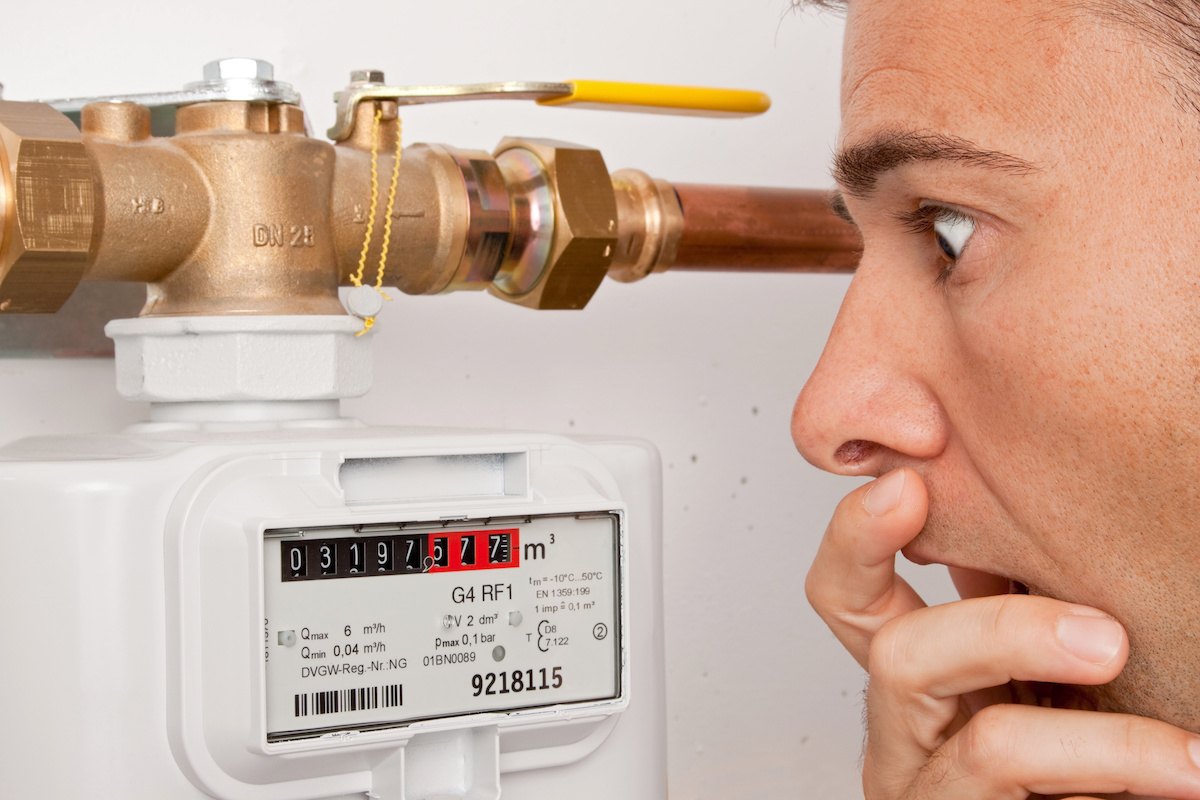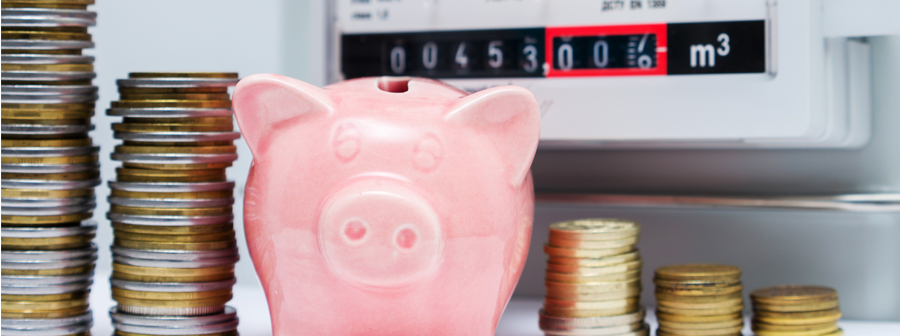
How is the electricity rate fixed in 2023? (and what about gas?)
The price of a kilowatt-hour (kWh) is one of the key elements of an electricity bill. But why is it important? Are there different types of invoices? And what about gas? Energyprice.be clarifies the matter for you.
Talking about electricity consumption automatically means determining an energy budget. This exercise implies that you have to consider your electricity needs, but there is another factor as well: the price. The lower the rate, the less money you will need to spend for the same number of kWh. Logical, you might say. However, there are some subtleties involved that might change the situation. Here is everything you need to know about the price of electricity in Belgium in 2023.
Discover all the energy suppliers promotions!
Compare electricity and gas prices and switch supplier for free in just a few clicks on Energyprice.be.
What does an electricity bill consist of?
An electricity bill is divided into three parts, namely:
- the price of the energy itself,
- the transmission and distribution costs,
- and the sum made up by the taxes (such as VAT) and surcharges.
These items make up the total electricity price charged to the consumer.

1. The energy price, in other words the price of the electricity
The energy price is set freely by the supplier, except for the social rate, which is determined by the federal regulator. The price of a kWh of electricity is based mainly on the wholesale market prices. It can therefore vary from one company to another It includes:
- the price per kWh for electricity itself,
- the fee, also called the annual subscription,
- and the costs incurred as part of the supplier’s obligation to purchase Guarantee of Origin labels and, in Flanders, cogeneration certificates.
This last category of costs is usually indicated on the bill as “Contribution to renewable energy” or “Green energy costs” and, where applicable, “Co-generation costs” (kosten WKK).
If you own photovoltaic panels and live in Wallonia, you will also have to take into account the prosumer rate in your electricity budget. This rate is charged for the use of the distribution network and makes the participation in the network fees uniform, regardless of your consumer profile. You could also still be charged this prosumer rate in Flanders if you still have a uni-directional analog meter.
2. The transmission and distribution prices
This component of the bill covers the costs of two energy market stakeholders:
- the electricity transmission system operator (TSO), i.e. Elia,
- and the distribution system operator (DSO) or distribution network operator (DNO) in the customer’s municipality. For information, the DSO was formerly referred to as the “intercommunal company”.
Unlike the energy price, the transmission and distribution prices are non-negotiable and must be approved by the Commission for Electricity and Gas Regulation (CREG – Commission de Régulation de l’Électricité et du Gaz or Commissie voor de Regulering van de Elektriciteit en Gas ). However, they can vary from one region to another, particularly depending on population density, as it will always be cheaper to supply electricity in towns and cities than in rural areas.
3. Taxes and surcharges
This final bill item includes the amounts set by the federal State and the Regions. The supplier collects the sums due, since they handle the billing, but they then forward these amounts in full to the various authorities.
In summary, consumers have limited room for manoeuvre since they can only influence the energy price, in other words, the part left to the supplier’s discretion.
Different kWh prices depending on the type of electric meter
When establishing its price plans, the electricity supplier must consider a technical element: the electricity meter. In Belgium, there are three main types:
- the standard meter,
- the dual meter,
- and the night-only meter.
Each one is associated with a specific electricity price and allows consumers to make savings as long as they are used in an optimal manner.
The electricity price at night: when to use the dual and the night-only meter

This is especially true for the dual meter. With its two dials, it divides the hours of the day in two time periods: peak hours, corresponding to daytime on weekdays, and off-peak hours, corresponding to nights and weekend days. The aim is to encourage consumers to use their energy-intensive devices during off-peak hours in order to make use of the excess electricity produced at night in Belgium. To achieve this, the idea was to offer an attractive rate during this period. In return, the day rate for the dual meter is higher than the single rate for the standard meter.
As for the night-only meter, it is used most by people who have electric storage heaters. The night-only rate is generally equivalent to the off-peak rate of the day/night system.
However, starting in 2023, the Flemish Region will see the introduction of a new billing system, marking the gradual end of the peak hours/off-peak hours system with regards to distribution costs. This so-called capacity tariff varies according not only to how much electricity you use but also when you use it. This new system optimizes electricity flows according to the capacity of the electricity grid and, as a consequence, should prevent it from being overloaded. Still in Flanders, supplier Engie has set up dynamic pricing contracts where the price of electricity is calculated on an hourly basis according to wholesale market rates. This process can lead to significant savings for certain types of consumers (especially those who pay close attention to their consumption).
Can’t decide between a standard and a dual meter?
Standard and dual meters meet different needs. So, before replacing your electricity meter, review your habits and work out your electricity consumption. If it is low, the standard rate will probably suit you best. If you have any doubt as to which type of meter to install, you can call us on 0800 37 456 or email us at info@energyprice.be.
What to choose: a fixed or variable electricity rate?
Most energy suppliers offer several kinds of contract. The consumer usually has the choice between, for example, a green electricity deal, a 100% online deal, or a more traditional deal. But one criterion goes beyond these specifics: the type of electricity price.
Fixed or variable, it influences not only the cost per kWh and the annual fee but also the guarantee given to the customer.

Characteristics of fixed and variable rates
A fixed rate ensures the same electricity price per kWh throughout the whole duration of the energy supply contract. In return for this security, suppliers often demand a higher annual fee.
A variable rate is indexed quarterly or monthly. Consumers often discover whether it has risen or fallen when they get their annual breakdown, though the price at any given time can be found on the customer space of the online supplier platform. The risk is that if the price has increased they will have to pay the difference, which may be substantial.
As a general rule, variable prices tend to be more attractive than fixed prices at the end of the contract as they carry more risk.
Which rate suits you best ?
To avoid a high energy bill, it is generally recommended that people who prefer security should choose a fixed rate for electricity. For natural gas, a variable rate might be more attractive as the natural gas rate is more stable. However, this does not stop some energy suppliers from offering a more attractive gas price than others.
It is also worth noting that current events can affect the situation as well. As a matter of fact, during the energy crisis in 2021 and 2022, almost all Belgian suppliers had withdrawn their fixed rate contracts from the market, in an attempt to prevent consumers from paying much higher instalments than the usual average. Since the start of 2023, these fixed rate contracts are back, though their prices is significantly higher that variable ones for now.
Two tips to find out the right the electricity rate for you
It is easy to feel overwhelmed by the huge number of electricity deals available on the market. Indeed, across all regions, there are more than 360 deals for electricity and gas for professionals and households!
Which energy supplier suits you best? Find it out with a simulation!
You could be tempted to choose one at random, but nothing would be riskier for your wallet. To save money, you must consider your needs before deciding which contract to take out. However, the financial aspect is not the only criterion that will determine which electricity supply deal you should choose. For example, it is just as important to check the supplier’s commercial and environmental policies as they may be incompatible with your deeply held convictions. Let us explain.
1. Choose your electricity contract carefully
If what you want is to pay as little as possible, you should be aware that some price plans will suit you better than others. Some electricity contracts are aimed specifically at families and offer a high annual fee and a low price per kWh.
In contrast, others are intended for people living alone. Because single-person households have low consumption levels, these contracts include an attractive annual fee but a higher electricity rate.
In addition to this specific feature, there are some other important criteria, such as the type of price (fixed or variable) and the conditions and duration of the contract.
Do you need help comparing electricity deals to find the one that best suits your profile? Our staff is available to assist you by phone on 0800 37 456, from 9.00 am to 6 pm, or by email at info@energyprice.be.
2. Choose your energy supplier carefully
If you’re finding it hard to distinguish between the different energy suppliers, it could be beneficial to take a look at the services they offer.
Companies like ENGIE, Octa+ and Mega all offer electricity deals, but that is often where the similarities end. When choosing between them, there are a number of factors you might need to consider:
- Customer service accessibility and quality;
- Bill payment methods;
- Promotions;
- The ergonomics of the website (simple and effective navigation, response to your needs and queries as a customer);
- The supplier’s purchase and investment strategy: most companies sell green electricity but few of them directly support the production of renewable energy. Often, they simply buy guarantees of origin. According to the Greenpeace ranking, some electricity suppliers are however an exception, like Ecopower or Eneco.
As a reminder, you are under no obligation to choose the same supplier for electricity and gas.
Evolution of electricity prices in Belgium
In Belgium, the complete liberalization of the energy market dates back to 2007. Although it was supposed to be beneficial to consumers, it does not seem to have had all the desired effects.
According to the scoreboards produced monthly by the CREG, we notice a significant increase of the price of electricity in 2022, with a peak in October. This increase is due to the supply difficulties follow the Russian invasion of Ukraine. Since then, the price of electricity has decreased gradually and in April 2023, it reaches pre-invasion levels. In concrete terms, the electricity bill of an average household in Belgium went from € 1,581.85 in April 2022 to € 1,279.90 in April 2023, meaning a decrease by € 301.95. Analyzed per Region, the price difference is noteworthy too:
- In Brussels, it went from € 1,528.46 to € 1,265.47;
- In Flanders, the annual bill fell from € 1,559.12 to € 1,211.45;
- In Wallonia, it has decreased from € 1,657.97 to € 1,362.80.
Note also from 1 April 2023, the VAT on electricity has definitively been reduced to 6 %. This measure had been taken temporarily a year prior in order to help Belgian households during the energy crisis. In the past, VAT was set at 21% for electricity and gas.
How to pay less?
- First things first, you need to check and adapt your own energy consumption. For instance, consider replacing your old energy-consuming household appliances or checking out if you are subject to any loss of electricity.
- Then, compare the energy rates charged by electricity and gas suppliers regularly. In view of what are sometimes unfavourable rate changes, this initiative is highly recommended. The ideal scenario would be to find a low fixed price and take advantage of it for a long time.
- If this is not possible due to the current situation, you can still enjoy attractive promotions and choose another deal once your promotions end. The good news is that cancelling an energy contract only takes a few minutes.
- Taking advantage of attractive rates often requires switching electricity supplier as most reductions are reserved for new customers. But don’t worry: this procedure is quick and free.
- In addition, Energieprice.be is here to support you and help you pay less for your electricity. Simply call us on 0800 37 456, from 9.00 am 6 pm.
What about the price of gas?
The price of gas is comprised of the same elements as that of electricity. Therefore, a gas bill is made up of the price of the energy itself, the transmission and distribution costs, the taxes and the VAT.
The major difference between these two energy sources stems from the way the bill is issued, because the gas meter displays the energy consumption in m³ rather than kWh. Consequently, once the meter reading has been completed, the supplier converts the cubic meters (the volume) of gas used into kWh (the energy consumed) with the help of a correction factor. This ensures a billing on a fairer basis for the consumers.
Furthermore, contrary to electricity, there is only one type of gas meter. Thus, the rate stays the same, independent of the time of day.
Regarding the evolution of the gas price, it has also been subject to inflation since the liberalization of the energy market in 2007, and especially in 2021 and 2022 given the sanitary and geopolical contexts. However, it has been steadily decreasing since the beginning of 2023. According to CREG figures, the price of gas in Belgium went from € 2,769.12 in April 2022 to € 1,520.86 in April 2023.
Contact one of our advisers
Summary
- What does an electricity bill consist of?
- Different kWh prices depending on the type of electric meter
- What to choose: a fixed or variable electricity rate?
- Two tips to find out the right the electricity rate for you
- Evolution of electricity prices in Belgium
- How to pay less?
- What about the price of gas?
Also read on our blog

Of all the many commitments made by the Belgian energy pact in 2018, the phasing-out of nuclear power by 2025 is no doubt the meas…

The reading of your electricity or gas meter is the responsibility of your distribution system operator (DSO). Each year, accordin…

Points clés : Tous les mois, le régulateur fédéral (CREG) et les régulateurs régionaux (VREG, CWaPE et Brugel) publient un tableau…

In July 2018, the Walloon and Brussels Parliaments voted in favor of installing smart meters – also known as communicating m…

